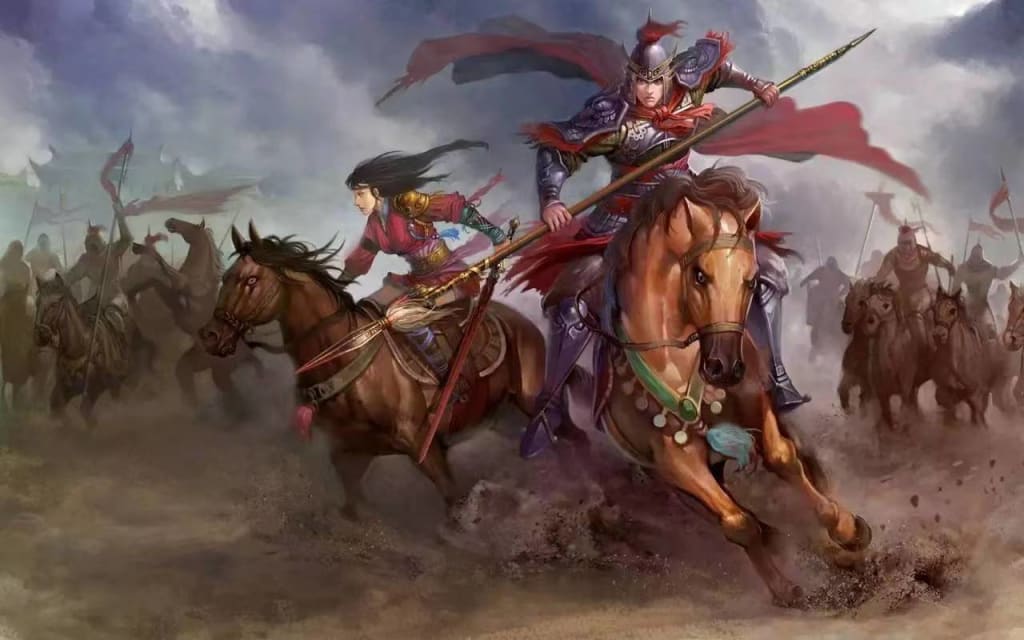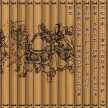
If Sun Tzu's Art of War is regarded as a building of war wisdom, the use of space is the foundation of the building, and the value of the foundation is reflected in "the essential of this soldier, and the three armies rely on it", that is, the strategic and tactical decision-making and execution of the entire army must rely on the intelligence obtained by "use space".
This is the reason why Sun Tzu advocated, "Therefore, the wise king is a good general, so move and win, success comes from the crowd, and the prophet is also". The core of "prophet" is "knowing each other" and "knowing heaven and earth", which is the premise for the national monarch to dominate the "five things and seven plans" strategic decision-making and the national master to dominate the "twelve paradoxes" tactical decision-making, however, "the prophet is not desirable in the ghosts and gods, not like things, not tested in degree. It must be taken from people, who know the feelings of the enemy ", that is, "prophets" must "use."
"Use time" is the extreme expression of "paradox".
Therefore, the identification of true and false information is the key link of "use between", "five together, do not know its way, is called God" contains "use between" system changes of true and false information.The research finds that the operational section is a subsystem of the battlefield competitive intelligence system of Sun Tzu's Art of War with independent value. The core value of the highly summarized operational section is "the essential of the soldier, the three armies rely on and move also", "this" is "the operational section", "the three armies" is the whole army, "relying" is dependent, "moving" is military decision-making and military action. Military decision making and military operations are divided into strategic decision making and strategic action and tactical decision making and tactical action. Therefore, this sentence can be extended to mean that the strategic and tactical decisions and strategic and tactical actions of the entire army must rely on the intelligence obtained by "use". The author summarized the essence of war wisdom in Sun Tzu's Art of War as "victory and defeat" derived from "vanity and reality", "vanity and reality" derived from "Qi-zheng", "Qi-zheng" derived from "form-soldier", "form-soldier" derived from "prophet", "prophet" derived from "use of time", which is generally speaking before the enemy and the enemy and the enemy and the two sides "fight". On the premise of "using time" and "knowing each other" and "knowing heaven and earth", the national monarch conducted strategic resource allocation in five lines by leading the "five things and seven plans" strategic planning, and the national commander conducted strategic resource adjustment in five lines by leading the "twelve paradoxes" tactical planning, and formed the "good and bad" strategy and tactics. Thus, through the merits and demerits of the strategy and tactics, the "deficiency and reality" of both the enemy and me are formed, and then the "victory and defeat" of the battlefield competition is realized through the "avoidance and attack of the deficiency" of both the enemy and me. Among them, "shape soldiers" is the process of forming "Qizheng" strategy and tactics, that is, strategic "shape soldiers" form strategic "Qizheng" and tactical "shape soldiers" form tactical "Qizheng". Strategic "formation of troops" is the process in which the sovereign of a country allocates strategic resources by leading the strategic decisions of "five things and seven plans", and tactical "formation of troops" is the process in which the sovereign of a country makes strategic resource adjustment by leading the tactical decisions of "twelve paradoxes". However, whether it is the strategic decision led by the sovereign or the tactical decision led by the national commander, it must be based on the premise of "knowing each other" and "knowing heaven and earth", "knowing each other" and "knowing heaven and earth" must be based on the premise of "prophet", and "prophet" must be based on the premise of "using time". This is the fundamental reason why Sun Tzu advocated that "Therefore, the wise king is a good general, so move and win, success comes from the crowd, and the prophet is also". It can be seen that "use" and "prophet" is the premise of determining the victory and defeat of the battlefield competition between the enemy and me. "Prophet" means that before "activating the army" and "leading to war", the monarch and the Lord of the country will "know the enemy and win without danger; Knowing heaven and earth, victory can be all "is the concept, through the" use of time "to obtain" know each other "and" know heaven and earth "intelligence, so as to carry out" five things and seven plans "strategic decisions and" twelve paradoxes "tactical decisions, and then through the strategic" shape soldiers "and tactical" shape soldiers "to form" Qizzheng "strategy and tactics. The endless "Qizhe" strategy and tactics are derived from the endless strategic tactics "shape soldiers", and the endless strategic tactics "shape soldiers" are derived from the endless "use time" and "prophet". However, the core value of the "prophets" on both sides is to identify the truth and falsity of intelligence. Otherwise, the "knowledge of the enemy" and "knowledge of heaven and earth" intelligence obtained by the "use of time" cannot become the basis for strategic "formation of soldiers" and tactical "formation of soldiers", the national monarch and the national commander can not make correct "Qis" strategic and tactical decisions, and can not achieve the strategic and tactical goals of "so move and win, and success comes from the people". Therefore, the author believes that the essence of battlefield competitive wisdom is the way for both the enemy and me to "use" and "prophet" to change the interests of true and false information. "Five sets up, do not know its way, is called God's discipline" is the highest realm of "use between" advocated by Sun Tzu, is also the essence of wisdom, "five sets up, do not know its way, is called God's discipline" The key is "Tao", that is, "use between" change the true and false information way. So, we have to figure out what is Tao? Tao is the internal change law of the "one" component of the life (competition) ability of things in a specific space-time environment, and the way of "use time" changing true and false information is the law of the "one" component of the "use time" system changing true and false information in a specific battlefield space-time environment. The key element of the "use-room" system in Sun Tzu's Art of War is "five rooms", and the law of changing true and false information among the five rooms is the way of changing true and false information in the "use-room" system. "Five one" mean, "because" between, between the "inside" and "solution", "death" and "living room" at the same time use will constitute the "in between" system as a whole "one", namely "because", "inside," solution ", the "between" death "and" living room "is the" a "" in between" system of five elements; "Do not know the way" means that the enemy does not know the true and false information interests of our army's "use" system, that is, the enemy does not know the law of our army changing the true and false information through the "use" system and changing the interests of both the enemy and me. However, I do not know why the previous commentators did not elaborate on the meaning of "Dao" in "Don't know its Dao". According to Lao Zi and other ancient Chinese sages, humanity conforms to the principle of Heaven, and humanity should be the law of mutual interaction, mutual growth and mutual change. Therefore, we can simply understand humanity as the law of obtaining value through changing interests, referred to as the law of seeking advantages and avoiding disadvantages. People who study the Art of War of Sun Tzu know that "soldiers, cunning also", "use" system change of true and false information interests is a special form of "military", "cunning" and "shape of soldiers", the outstanding performance of "military", "cunning" and "use" is to show the truth with false and true to show false, that is, the interaction of true and false information, mutual generation, mutual change of dynamic balance. Therefore, our army through the "trick" and "use" change of true and false intelligence will lead to the enemy does not know our army "use" change of true and false intelligence interests, resulting in the enemy's latent "deep can not see, the wise can not plot", and then can not form a strategic advantage through the "five things and seven plans" strategic planning and "twelve tricks" tactical planning to form a tactical advantage. Therefore, we can simply understand the way of "using between" as the way of changing true and false information; The so-called "is the divine discipline" refers to the source of the divine change that changes the true and false information. "Yes" means that this is it, and "Divine discipline" means the source of change. "Divine discipline" is the key, but also the most difficult to understand, "divine" refers to the miraculous change, "discipline" refers to the source, and this source is "Tao". According to the interpretation of "Tao" by Laozi and other ancient sages, "Tao" is the process of heaven and earth changing and yin-yang creating all things, and the law of this process is the dynamic balance of yin-yang interaction, mutual production, mutual transformation and integration. Therefore, Tao is the source of changing yin-yang. The way of "using between" is to change the source of true and false information, that is, the dynamic equilibrium law of interaction, mutuality and intervariation of true and false information. If we master the true and false information interests of the "use room" system changes, our "use room" system will fully play its role and the enemy's "use room" system will not fully play its role. Thus, we can form a strategic advantage through the "five things and seven plans" strategic planning and the "twelve paradoxes" tactical planning to form a tactical advantage and make the enemy cannot form a strategic advantage through the "five things and seven plans" strategic planning and the "twelve paradoxes" tactical planning to form a tactical advantage. It can be seen that the way of changing the true and false information interests in the "use between" system of Sun Tzu's "Art of War" should also be the wisdom source of modern intelligence and information warfare. If Sun Tzu's Art of War is compared to the "building" of competitive wisdom on the battlefield, the "use room" is the "foundation" of the "building". This is also the "Art of War" 13 of the use of the last chapter of the purpose.
About the Creator
PunkX
PunkX, a native of Henan Province, China, studied the strategic allocation of business codes in Sun Tzu's Art of War, which implicitly uses Tai Chi values and battlefield competitive wisdom.






Comments (1)
This is great work you can also join my friends and read what i have just prepared for you